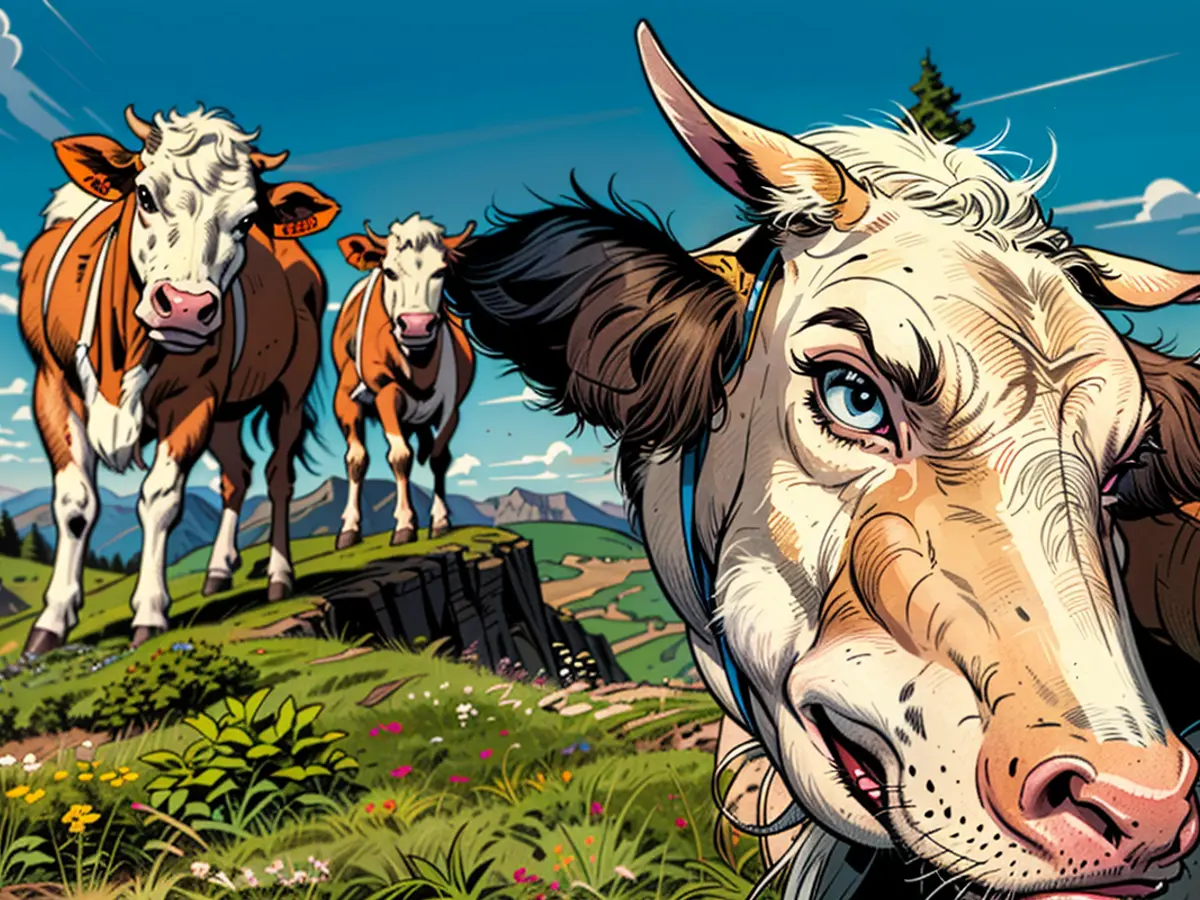- Farmers warn of threat to traditional bee farming
Bavaria's Alpine and Alpine farmers fear for the survival of traditional grazing farming with the planned revision of the Animal Welfare Act. Many family businesses would be at risk of closure if the law is passed in its current form, warned the Bavarian Farmers' Association (BFB), the Alpine Agricultural Association of Upper Bavaria (AAV), and the Alpine Agricultural Association of Allgäu (AAA). This would have serious consequences for biodiversity and tourism in Bavaria's mountain world.
At the core of the issue is the end of tethering, where cows are tied in stalls all year round. According to the draft, dairy farmers nationwide would have to switch to free-stall or combination systems after a multi-year transition period. In combination systems - in the stall in winter, on the pasture or alpine meadow in summer - animals would have to be given outdoor access twice a week during the stall period. This applies only to operations with up to 50 cattle older than six months. In many villages, there is simply no space for such winter outdoor access, criticized farmers under the motto #thatwouldbeweg.
Farmers fear for their existence
Two-thirds of combination holders in Bavaria could not meet the requirements, according to BFB. The requirements are existence-threatening. "What is needed to prevent a structural breakdown is time for further development and the permanent preservation of the classic combination system without excessive additional requirements such as an additional winter outdoor access," says BFB President Günther Fessler.
The regulation threatens the existence of alpine meadows and thus also the existence of the cultural landscape maintained over generations, says Hans Stöckl, managing director of AAV. Alpine meadows and Alps would become overgrown, alpine huts as tourist destinations would disappear. "This would be the end for our small farmers in the villages who bring their cows to the alpine pastures, the end of the alp and the valley operations that shape the village character," says also Christian Brutscher, chairman of AAA.
Un-grazed slopes are also more susceptible to landslides. On ungrazed grass, the speed of snow also increases - and thus the risk of avalanches, it is further stated.
The planned upper limit of a maximum of 50 cattle must be removed, demanded the farmers. It has no connection to animal welfare and animal well-being; this rigid line is not practical for a living operation. Combination systems are usually operated by small family farms with stalls in the village center that allow their animals time outdoors, for example through pasture areas between spring and autumn. However, most of the affected farms do not have the structural, personnel, or financial resources to implement the required requirements.
The alpine farmers want to bring their concerns to politics at the main alpine inspection on Wednesday in Oberammergau. Among others, Federal Minister of the Environment Steffi Lemke (Greens), Bavarian Minister of Agriculture Michaela Kaniber (CSU) and Minister of Economics Hubert Aiwanger (Free Voters) will be there.
There are around 1,500 alpine meadows and alpine pastures in Bavaria. Around 55,000 cattle, sheep, goats, and horses spend the summer there. Nationwide, there are around 28,300 tethered operations, according to BFB citing the Thünen Institute. There are over 10,000 dairy farms with tethering in Bavaria, of which 3,500 are combination holders who send their animals to the pasture in summer.
The Bavarian Farmers' Association (BFB) urges for more time and the preservation of the classic combination system, stating that two-thirds of combination holders in Bavaria would struggle to meet the new requirements. The planned regulation also concerns Hans Stöckl, managing director of AAV, who warns that alpine meadows and the Alps could become overgrown, leading to the disappearance of alpine huts and small farmers.








